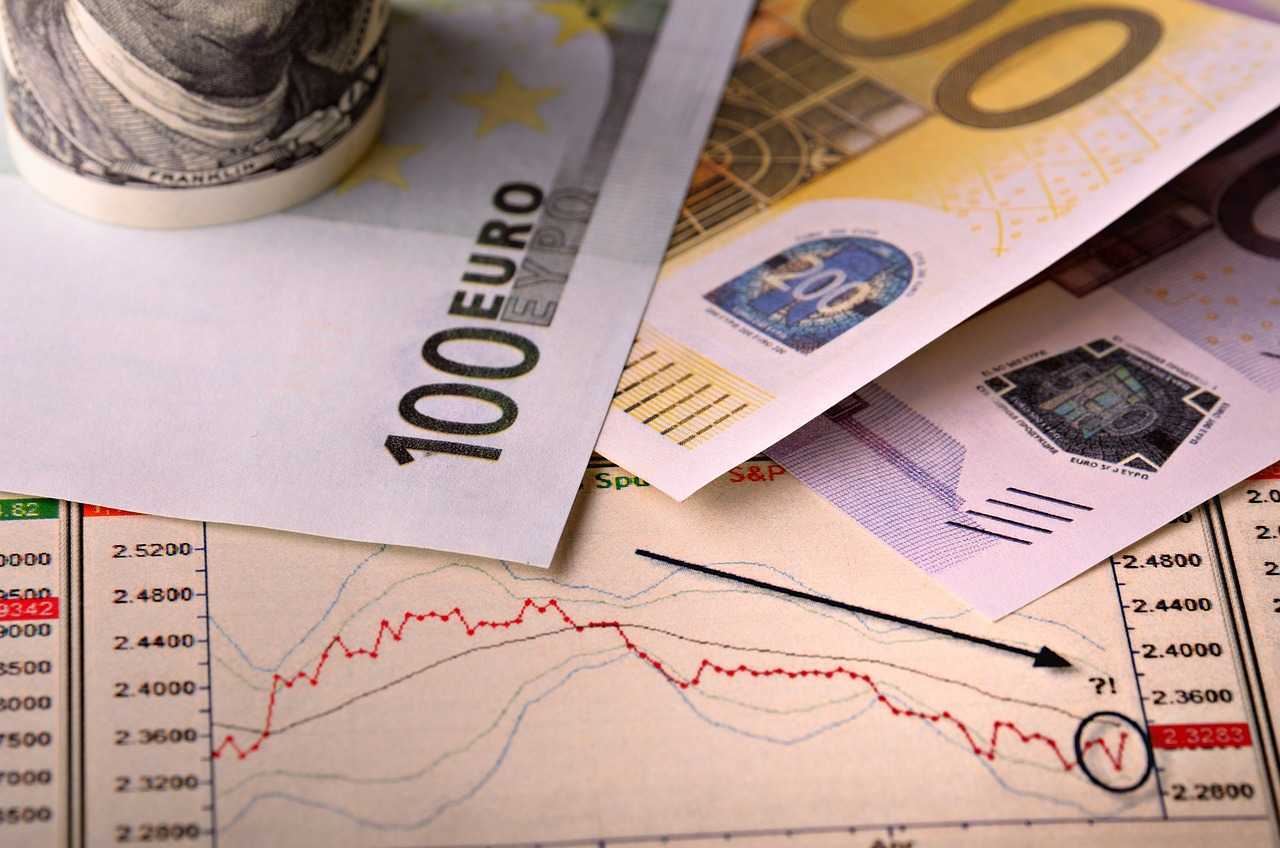There are lots of different bank accounts in Austria and the tax system is relatively simple to follow. Keep reading to find out how to open a local bank account, which banks to choose, and what to know about income taxes and more in Austria.
Advertisement
Fernando Achutegui
InterNations events and forums have provided me with an extensive network of business and personal contacts in Vienna.
Jayanti Malhotra
The group of InterNations expats in Vienna is so open and friendly that it was very easy to make friends.
Jump right in:
Advertisement
Why you'll love InterNations in Austria
and countless possibilities for fun and friendship!
Advertisement
Advertisement
How to Open a Bank Account in Austria?

If you’re wondering how to open a bank account in Austria as an expat, the difficulty of your task will depend on your residence status.
Certain banks, such as Erste Bank, allow non-residents to sign up with them — though you might still need to go to the bank in person. Once you’re living in Austria and are a registered resident, opening an account will be much easier.
Banks that accept non-residents:
- N26 (online bank)
- Revolut (usable across the EU)
- Bank Austria (UniCredit) (requires in person appointment)
- Erste Bank
- Western Union Digital Bank
To open an Austrian bank account, you usually need to provide your:
- Passport (or EU national ID)
- Proof of address (i.e., your Meldezettel once you’re registered in Austria; bills or official correspondence if you still live abroad)
- Reason for account (e.g., property purchase, salary payment, studying, etc.) (usually needed for non EU citizens)
- Proof of income or employment
PostIdent ID Check
If you decide to apply for a bank account online, you’ll almost certainly need to verify your identity by providing a PostIdent.
For this, there are four ways to verify your identity:
- eID: Identify yourself through an existing ID Austria account (also available to expats who are registered in Austria).
- Photograph: You provide a photograph and record a video clip of your face to verify your identity.
- Video chat: You provide personal data and use your webcam to call a Video-Ident call center agent. This person will take your picture and verify your identity.
- Post office: You can visit a post office in person, with your personalized PostIdent coupon generated by the PostIdent portal, and an assistant will walk you through the process.


Which bank to choose?
No-fee bank accounts in Austria
You can get an account with some banks in Austria without paying any bank fees or a minimum deposit. These are often called no-fee bank accounts.
Some well -known providers of this type of account are:
*Neo-banks with an online-only presence Incentives for new customers (e.g., a bonus payment or travel voucher) are common, so make sure to compare offers. When comparing, also keep an eye out for restrictions (e.g., online only, just the first year’s free) and possible additional benefits (e.g., free credit card).
Mobile banking and contactless payments
Now, mobile payment options are available in Austria. Mobile payment apps allow you to make contactless payments via your mobile device. They are available with more modern bank accounts, from companies, such as Bunq, Noda, Revolut, Sparkasse, ONB.
You can digitize your payement card onto your mobile or smartwatch. The concept is that your card is stored in a virtual wallet, the option is offered by Google Pay, Apple Pay, Samsung Pay, PayPal (most popular option among Austrians), Amazon Pay, you can add more than one card to the virtual wallet.
Another option is QR codes (e.g Bluecode) rather than NFC. The QR code is scanned while shopping either by you or the merchant.
Popular apps for cashless payments used in Austria:
- George (Erste Group and Sparkasse banks)
- N26 (N26 bank)
- Wise (Wise bank)
- RaiPay (Raiffesen bank)
- Revolut
How common is cashless payment in Austria?
According to our 2025 Expat Insider survey results — where we ask our InterNations members about insights on life abroad —, Austria ranks in the bottom 5 for cashless payment options. Only about three-quarters of respondents agree it’s easy to pay without cash (76% vs. 85% globally).
While cashless payments are growing more popular, Austrians still have a preference of using cash for direct payments. Restaurants, cafés, and small shops often have a minimum purchase price for cashless payments. Therefore, keeping some cash for daily expenses while staying in Austria is definitely a wise choice.
What is the Tax System like in Austria?
Like many other Western countries, Austria has a progressive income tax system, which ranges from 0 to 55%. In Austria, the more you earn, the more tax you pay. People who earn 13,308 EUR (15,400 USD) or less per year do not have to pay any income tax.
Tax brackets based on annual income in Austria (as of 2025)
| Income (EUR) | Income (USD) | Tax (%) |
0–13,308 | 0–15,400 | 0 |
13,308–21,617 | 15,400–24,930 | 20 |
21,617–35,836 | 24,930–41,330 | 30 |
35,836–69,166 | 41,330–79,770 | 40 |
69,166–103,072 | 79,770–118,880 | 48 |
103,072–1,000,000 | 118,880–1,153,350 | 50 |
Over 1,000,000 | Over 1,153,350 | 55 |
Tax identification number in Austria
If you work in Austria and pay taxes, you are issued a Tax Identification Number (TIN) called Steuernummer. This number is unique to you and issued by the Austrian tax authority upon registration with them.
If you’re employed, then your employer will take care of this registration and you’ll be issued a tax ID.
If you’re self-employed, you will need to request the number at your local tax authority (Finanzamt) or via FinanzOnline.
Tax returns in Austria
Tax returns can be quite a headache. And you might not even be required to file in the first place, as employers typically automatically withhold income tax from your paycheck.
But to declare additional incomes or received tax benefits and to claim tax deductions, fling is still required.
You’ll need to submit an employee tax return (Arbeitnehmerveranlagung) to the Austrian tax office (Finanzamt). You can do this online through the official portal FinanzOnline.
You’ll need documents like your Lohnzettel (annual income statement) from your employer and receipts (if you have any) for expenses like education, commuting, or other work related costs. After processing, the Finanzamt will issue a tax assessment notice (Bescheid) and transfer any tax refunds to your bank account.
If you don’t want to do everything yourself, you can always hire an agent company that helps you to get your tax returns for a certain fee.
Types of taxes in Austria
- Income Tax
As we wrote previously, the income tax system in Austria is progressive, and ranges from 0% if you earn 13,308EUR (15,400 USD) or less, up to the top rate of 55% for incomes over one million EUR (1.15 million USD).
The average annual salary in Austria is approximately 38,450 EUR (~44,960 USD), so the average income tax would close to 7,000 EUR (~8,185 USD).


- Corporate tax
Companies are subject to unlimited taxation of their entire income if they are legally based in Austria.
- Real estate transfer tax
(Grunderwerbsteuer) amounts to 3.5% of the value of the property.
Progressive tax brackets between 0.5% and 3.5% of the value of the home apply when property is transferred between family members.
- Social security tax
In Austria, your contributions to the social security system (Sozialversicherungsbeiträge) cover a range of insurances: health, pension, unemployment, and accident. They’re typically automatically deducted by your employer, while self-employed expats need to contribute directly.
The sum of contributions amounts to close to 40% of your gross income, split between you and your employer (as of 2025):
| Employee | Employer | |
Health insurance | 3.87% | 3.78% |
Pension insurance | 10.25% | 12.55% |
Unemployment insurance | 2.95% | 3% |
Accident insurance | 0% | 1.2% |
Other contributions | 1% | 0.85% |
- Value added tax (VAT)
Although the European Union sets VAT compliance rules, Austria is able to set its standard VAT rate and set reduced rates on a limited range of goods for economic reasons. If you have a business in the Alpine country, you must charge these rates, or you will be liable to pay the difference.
Standard VAT in Austria stands at 20%, while there exists reduced rates of 0%, 10%, and 13%.
Reduced VAT rates
The reduced rate of 13% is added to:
- domestic flights
- admissions to sporting or cultural events and amusement parks
- firewood and some agricultural supplies
- wine production (from farm)
- cut flowers and plants for decorative use
The reduced rate of 10% is added to:
- Foodstuffs (incl. restaurants, take-away, water) and wine production from farms
- Pharmaceutical products
- Domestic transport (except flights), plus international/intra-EU road and rail transport
- Newspapers, periodicals, printed books, and other works by writers and composers
- Pay/cable TV and TV licence
- Social services, refuse collection, and wastewater treatment
- Firewood, agricultural supplies, and cut flowers/plants (for food or decorative use)
The 0% rate is applicable for:
- intra-community and international transport (excluding road and rail);
- hotel accommodation;
Registering a business for VAT
If you’re a business owner and you are providing taxable supplies of goods or services in Austria, you may have to contact the tax authorities and register for VAT.
There are certain situations where this could be necessary, including:
- importing goods into Austria from outside the European Union;
- intra-community sales or purchases of goods from another EU country;
- buying and selling goods in Austria;
- holding goods in Austria on a consignment stock basis;
- e-commerce sales of goods to consumers, subject to Austrian VAT registration thresholds;
- organizing live conferences or exhibitions with on-the-door payments;
- if a company is otherwise a non-VAT trader but is receiving services in Austria under the reverse charge rule;
- the self-supply of goods.
Taxes for self-employed people in Austria
As a self-employed person in Austria, your income will be taxed with the same income tax rates previously mentioned. Until you earn more than 13,308 EUR (15,400 USD) per year you will not have to pay any income tax.
Self-employed persons have been awarded an automatic profit tax allowance of up to 4,950 EUR (5,710 USD) per year.
Advertisement
Join our exciting events in Austria!
Looking to make the most of your expat life in Austria? Whether you’re new to the country or have been here for a while, our InterNations events offer a fantastic opportunity to meet like-minded people, expand your social circle, and discover the best the country has to offer.
From casual get-togethers to themed events, we cater to all types of interests and hobbies. It’s not just about networking — it’s about building lasting friendships, exploring new experiences, and feeling truly at home in Austria.
Don’t miss out. Check out our events today!




Advertisement
Our Global Partners
Communities in Austria
Like-Minded Expatriates in Austria
Austria Guide Topics
Advertisement







